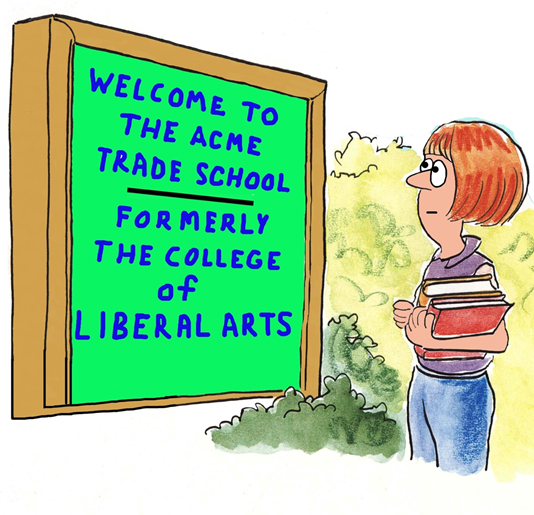
Essence of Liberal Arts:
We are living in a world marked by a culture of complexity with myriad interconnected problems and challenges. Hence, a single funnel shaped education and learning is not adequate enough to address multifarious sustainability challenges pertaining to the social, economic, environmental and ecological domains of sustainability and sustainable development.
An inter-disciplinary and transdisciplinary education and learning process have become a must in this scenario of the changing world. What if you get a learning opportunity through a Bachelor’s programme to address such challenges by means of an experiential pedagogy?

What is Liberal Arts Education?
A liberal arts education provides us with such an experiential frame of thinking by studying sustainability challenges of today and the future through the lens of disciplines like humanities, science, commerce, technology, spirituality, faith, fiction, media, ecology and management. However, there is a lack of awareness about existing and futuristic liberal arts programme in India.
A curriculum and learning process of liberal arts empowers students and teachers and all communities, stakeholders at large to deal with a culture of diversity, complexity, change, mobility, critical thinking by combining subjects from disciplines of Sociology, Arts, Performing Arts, Literature, Social System, Political Process, Society and Culture, Sustainability Communication, Social Works, Economics, Public Relations, Archaeology, Advertising, Public Policy, Training & HR, Psychology, International Relations, Academics, Social Work, Civil Services, Journalism/Media/Mass Communication, Corporate Communications, Research and Writing & many more.
Top 4 Advantages of Getting a Liberal Arts Degree
A Liberal Arts degree, therefore, provides any student with the following benefits which are –
- Ability to deal with career, social, personal uncertainties of life:- The course create a problem solving creative attitude in a student which enables him or her to deal with career, social and personal uncertainties in a very natural way. Therefore, the student can easily switch and create options to address these uncertainties
- Development of soft skills complemented with emotional intelligence:- A course like liberal arts, empowers, creates and catalyses the existing and future potential emotional intelligence of any student, learner, teacher and facilitates the development of a coexisting, peaceful society by addressing the social, economic, environmental, ecological and governance challenges of the upcoming century
- Development of analytical, critical abilities with a cultural, creative, imaginative understanding:- A liberal arts course enhances the capability of any student to creatively imagine, understand about various present and futuristic possibilities epicentred within a culture of complexity and solve them through new analytical, critical process of thinking
- Opening up of new career options:- A student is endowed with more opportunities and career options due to the multidisciplinary skill set and can be suited to find out a career option in academia, public policy making, journalism, public relations, writing, law, politics, linguistics, publishing, social work, psychology, management, public policy, civil services, marketing and many unknown and unventured startups for future with larger leadership skills
Structure of Liberal Arts Program
A liberal arts program is largely structured into the following vertical segments – Major, Minor and Foundation.
Major – It is a field in which a student focuses on subjects of science, literature, arts, humanities and other disciplines as pure majors along with interdisciplinary majors which are integrated with political process, public policy, international relations, interdisciplinary courses, sustainability communication, literature studies.
Minor – It is a vertical field which complements the Major by means of courses pertaining to Performing Arts, Visual Arts, Creative and Media Communications, Environmental Studies and Thinking, Art and Sustainability.
Foundation – These courses are distinct with inter and transdisciplinary methods of studying environment, ecology, civilization, society and culture, principles of science, literature, philosophy.
FOR FURTHER DETAILS REGARDING UNIVERSITIES, FEE AND ADMISSION PROCESS OF LIBERAL ARTS CONTACT: Gen Z Careers
